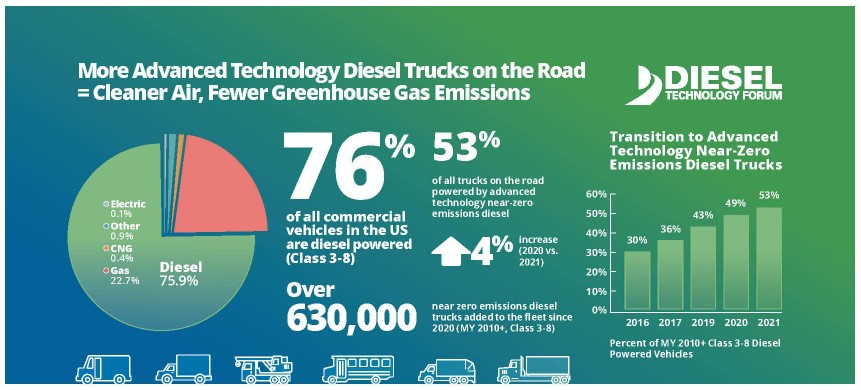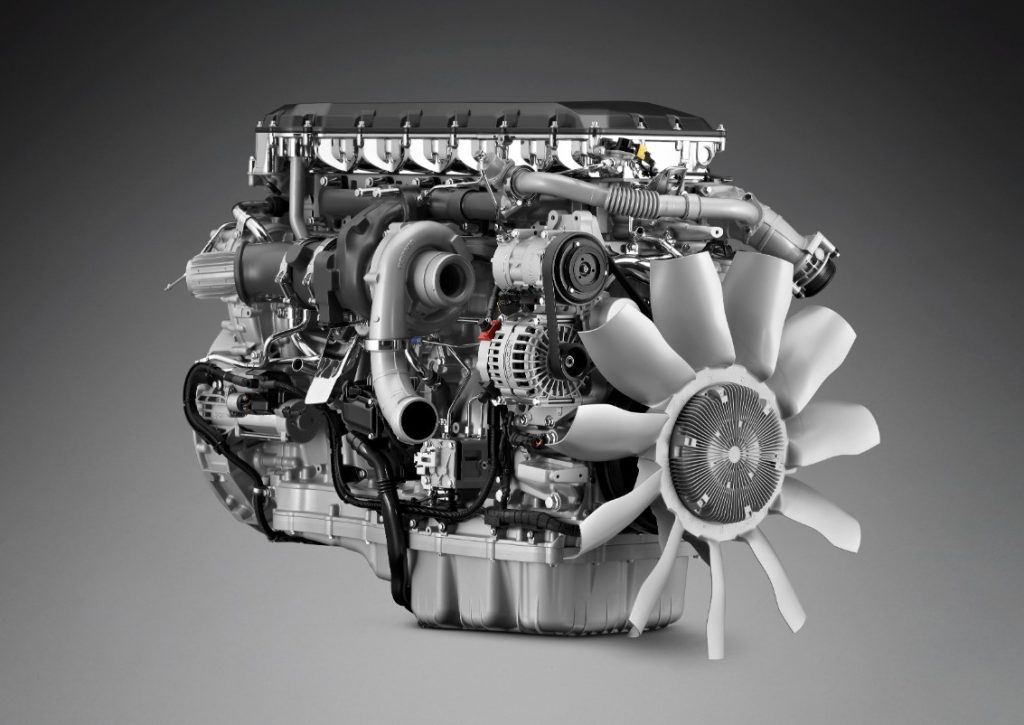New study shows ‘New Technology Diesel Engines’ less costly way to lower harmful emissions than adopting of electric vehicles – Diesel Advocacy Group study for Diesel Technology Forum.
New technology diesels are those built since 2007, when diesel particulate filters were adopted, explained Diesel Technology Forum’s executive director, Allen Schaeffer. Diesels from 2010 and newer added nitrogen oxide-reducing equipment to make the engines cleaner. A forum survey showed that 53% of trucks now in service have new-tech diesels, but considerable benefits would come from retiring the other, older trucks and replacing them with the cleaner vehicles.

Costly Adoption – Diesel Engines To Electric
Adoption of electric vehicles, few of which are currently available still today, would cost a trucking fleet three times more than converting to today’s new-technology diesels, the study by Stillwater Associates adds. The study for the forum looked at air-quality conditions in 10 North Eastern states in America, that have adopted California’s regulations for low-emission and zero-emission vehicles, then drew its conclusions.
Cutting particulate matter, commonly called soot, has the greatest benefit to improving air quality, especially in large cities in the North East, said Gary Yowell, the Stillwater researcher who did the study. Experts claim that soot harms lungs and leads to numerous health problems. Diesel particulate filters used since 2007 cut soot by about 98%.
“The urgency to implement solutions to reduce greenhouse gases from transportation and address climate change is heard on a daily basis,” Schaeffer said. “Transitions to new energy sources still have considerable uncertainties and longer timeframes – a decade or more – to meaningful implementation… Advanced diesel technology, as well as renewable and biodiesel fuels, are key available solutions that can deliver big impacts today.”

Fuel Comparison
Low-carbon, renewable bio-based diesel fuels cut emissions even more, he said. These fuels can be used in all diesel vehicles today, so fueling those in the study area with 100% renewable diesel engines resulted in three times larger cumulative greenhouse-gas reductions by 2032 than the EV scenarios, analysis indicates. The results were about the same if B20 – a 20% blend of biodiesel with 80% petroleum diesel – were used.
Electric trucks beat diesel engines in reducing nitrogen oxide emissions, the study notes. However, electric trucks are generally deployed on shorter routes and run shorter distances than comparable diesel vehicles, so NOx emission reductions with advanced-technology diesels would be greater on a cumulative basis.
The cost of electricity that would run electric trucks is lower now than for diesel, but that’s partly because there’s no road tax on electricity, Yarnell said. If and when authorities add road taxes, the business case for electric trucks would suffer.

Over the last 20 years, emissions from new heavy-duty diesel trucks and buses, were reduced by 95% for nitrogen oxides (NOx), an ozone precursor, and 90% for particulate emissions. Today’s trucks are so low in emissions that it would take 60 new trucks to generate the same emissions as a single truck manufactured in 1988!
O’Donnell Commercials Truck and Trailer Parts – Order Online
Next Day Delivery Throughout Ireland and UK.
If you cannot find the parts you require or have any queries, please do not hesitate to call, e-mail or fill out the fitting check form, as we update our site daily – we are here to help.
– Tel: 00353 (0)74 93 90122
– sales@odonnellcommercials.ie
Chat to Daryl, Chris or Gerry.



